♀️ The Trailblazing Women of Wall Street
Women have long shaped Wall Street—even when history tried to write them out.


We sat down with Darren Cole, director of Soho Playhouse, in order to delve into its history, which spans back to the Revolutionary War era:
The land on which the theatre is situated on was part of the Richmond Hill estate, which spans south from Canal Street, to north to Houston Street, and from east at McDougal Street to west at Greenwich Street.
“…that was Aaron Burr’s famous estate where George Washington was headquartered for The Battle of Manhattan. This massive land—hill even at the time—was considered the countryside all through the late 17th century and 18th century,” says Cole.
In 1804, Aaron Burr, the Vice President of the United States at the time, dueled Alexander Hamilton, the former Secretary of the Treasury at Weehawken, New Jersey. Because dueling was banned in the state of New York just that year, the two men fought in New Jersey – the culmination of a series of bitter rivalries between both parties. Burr fatally shot Hamilton, who died the next day. For the fear of being arrested, he later fled to the Carolinas, before heading to Paris.
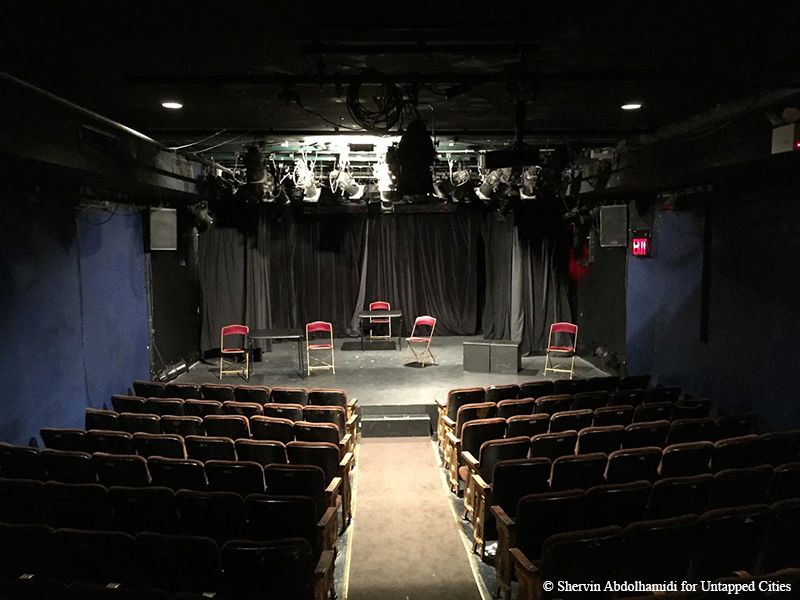
Seeing that he couldn’t return to New York, Burr sold Richmond Hill to John Jacob Astor, who leveled the property to build a series of row-houses. In fact, the land west of Greenwich Street is comprised of all the landfill from the process.
The row-houses along Vandam Street still exist today. It is now a New York historic district (the King Charlton Vandam district), which encompasses the oldest standing Federalist architecture left in America. According to Cole, the building housing the Playhouse was built in 1826, 40 years before the Civil War, by John Jacob Astor.
Later in the 1880’s, the residential building was taken over by the Democratic Party political machine, known as Tammany Hall, to be used as its social club.
“The main Tammany Hall was in Union Square, which is where their headquarters were. So they wanted somewhere that was more out of the way and discrete.”
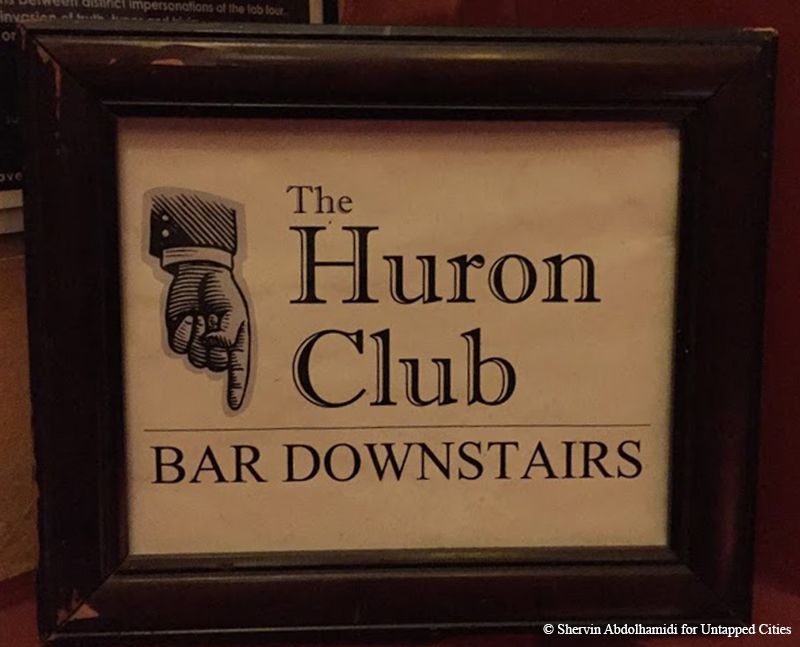
Over time, the newly dubbed Tammany Hall Huron Club garnered an infamous reputation. The expression ‘One stop Shopping’ arose in reference to the building because it had bar downstairs, which later became a speakeasy (still in existence), a main room where the meeting hall was located (and where voting took place) and a whorehouse upstairs. ‘Battery’ Dan Finn, Mayor ‘Beau James’ Walker also lived in the building before it was converted into a theatre in the 1920’s.
“..they needed a cover for the speakeasy, so this was a Democratic Meeting Hall for years, which was also used as a theatre,” says Cole.
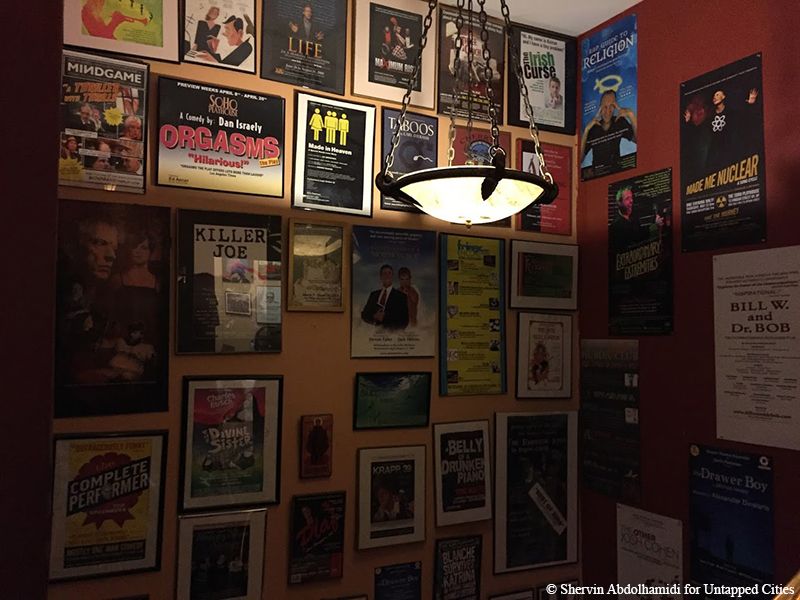
Then in the 1950’s, Edward Albee took over the building and converted it into the theatre we know today. It once hosted Albee’s famous Playwrights Unit, which fostered playwrights like Sam Shephard, Leroi Jones, Lanford Wilson and their first works.
Since the 1950’s—save a short period when the structure was undergoing light renovation, and when it was being used as movie theatre—the building has operated as a playhouse, housing performances ranging from the “super edgy” first plays of Sam Shepherd to the works of Killer Joe, whose first play Darren Cole produced back in 1988. It is reputed for its cutting-edge off-Broadway theatre, which is how “the Soho Playhouse became famous.”
“[Edward Albee] had this first great expression that he said, ‘People go to Broadway to look, they come off-Broadway to listen.’ And that really sums it up about the style of theatre. It’s way more conversation in a room. You’re going to get way edgier, harder hitting, less commercial, more intense—like the quintessential off-Broadway, downtown, throw down play happens here,” Cole states.
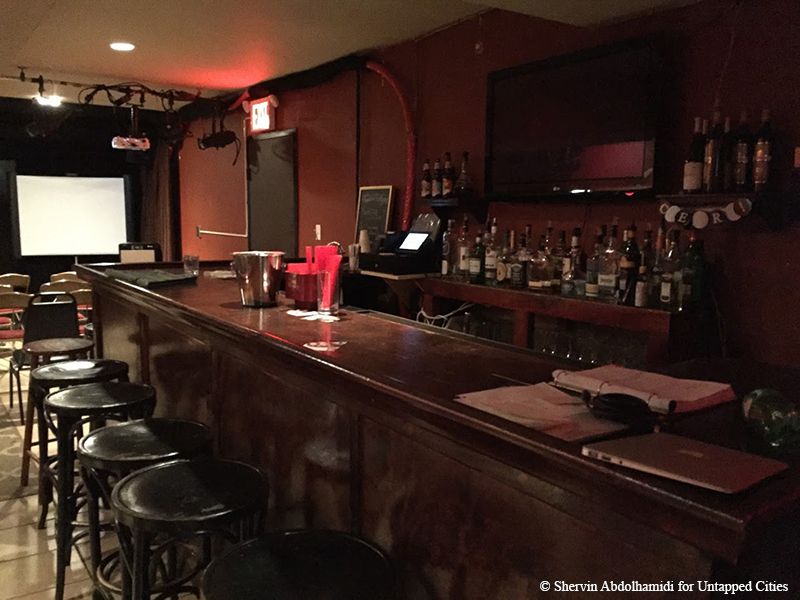
Today, the building embraces its sordid past; “Huron Club” is still etched outside as a physical reminder of its infamous history. At the time of its establishment, the club founders chose the name in honor of their forefathers who won a famous battle against the Huron Indians.
Moreover, in the basement, the speakeasy alive and well, fitted with a small screen and projector that allows guests to watch the show upstairs while having a drink—a coalescing of building’s notorious past and the theatre’s off-Broadway, less commercial style of performing art.
This building’s reputation for a hard-hitting shows is exactly why Cole believes Carl Barron is perfect for the theatre. “Carl has a great appeal; he’s super smart and funny. Carl is perfect here because Carl can get the vibe going that he’s best at—which is it feels like you’re sitting in a room with Carl, not that he’s way up there on some big stage. But to get 200 people in a super-cool, downtown, off-Broadway room and turn Carl lose, is sort of a really good formula.”
Check out a clip from Barron’s show below:
Carl Barron unique, conversational-style of comedy, based on insightful observational humor and a sideway-take on everyday life, has had audiences around the world heartily laughing out loud. His latest tour, “Drinking with a Fork” broke box office records in Australia, and sold over 300,000 tickets. He will be performing five shows at the Soho Playhouse from November 15th to the 20th. Tickets can be purchased on Soho Playhouse’s website. .
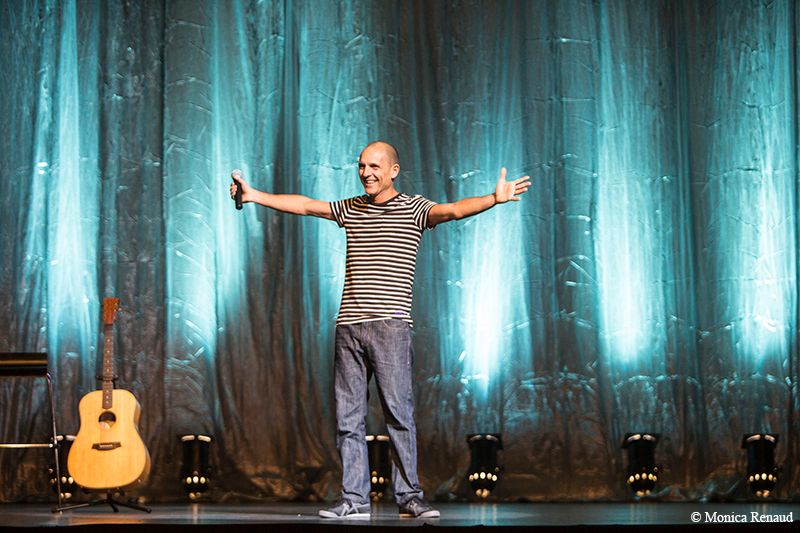
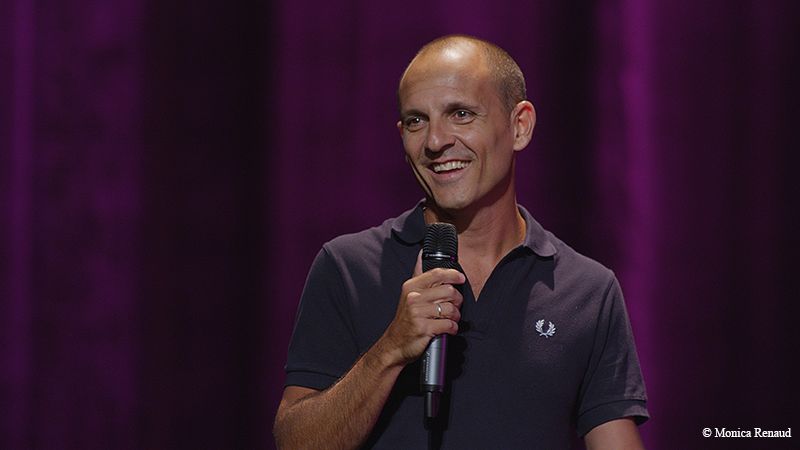
Next, check out 9 Unique Movie Theaters You’ll Only Find in NYC and 10 Repurposed Theaters in NYC.
Subscribe to our newsletter